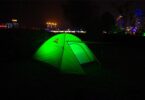Australia’s outback offers exceptional stargazing experiences unlike anywhere else. Under the iconic Southern Cross constellation and Milky Way, Australians can observe celestial wonders unattainable in the Northern Hemisphere.
Key sights include the Milky Way galaxy arcing brightly across the night, neighbouring Magellanic Clouds, and prominent deep sky objects like Omega Centauri and Jewel Box star clusters dominating the Southern Hemisphere skyscape. The outback stargazing allows appreciation of the vast cosmos with an unimpeded view of astronomical treasures only visible from Down Under.
With a portable Jackery solar power setup and dark, pristine skies far from any light pollution, you can have a memorable experience in Australia in a way that few other places on Earth allow.
Best Places to Stargaze in Australia
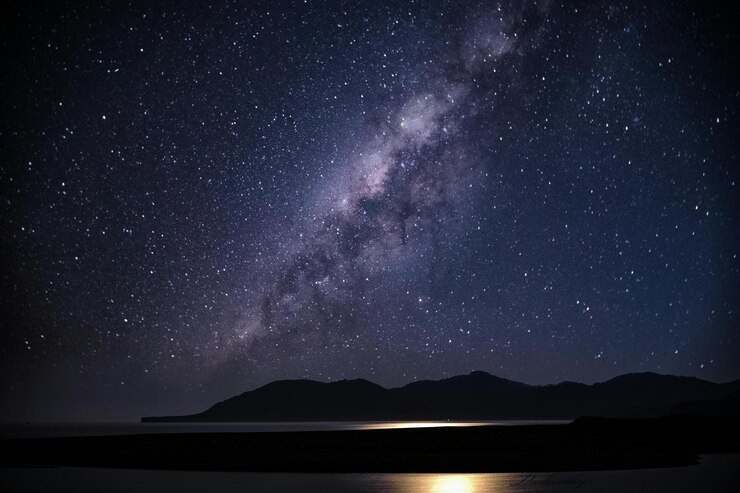
Source: freepik.com
Australia has no shortage of amazing places offering some of the darkest and most spectacular night skies in the world for stargazing and enjoying the beauty of stellar objects. Some of the best locations for harnessing the dark to observe celestial wonders include:
Warrumbungle Dark Sky Park (New South Wales)
Found within Warrumbungle National Park, Warrumbungle Dark Sky Park was bestowed the distinction of being the first International Dark Sky Park in the Southern Hemisphere. Its solitary high peaks stand apart from the surrounding low country, unveiling unmatched spectacles of the Milky Way sweeping majestically through the inky black velvet of the night.
Over 220 square kilometres of parkland are protected for their exceptional stargazing quality, with skies remaining pristine despite their proximity to cities. The Siding Spring Observatory complex within the park hosts public tours and educational programs, making it a popular astronomy tourism destination.
River Murray Dark Sky Reserve (South Australia)
Stretching along 150km of the River Murray west of Renmark, this reserve encompasses two sites – Psyche Reserve and Chowilla Regional Reserve. Vast open plains afford visibility to the celestial horizon and observation of rare natural light displays like zodiacal light and meteor storms.
The reserve’s remote rural seclusion ensures limited artificial light pollution, maintaining true darkness that exceeds even outback regions nearby. It hosts an annual Milky Way festival celebrating the night sky.
The Jump-Up (Queensland)
Located within Carnarvon National Park 80km north of Roma, this isolated outcrop rises over 1000ft above the vast channel country floodplains, presenting unimpeded panoramic views. Terrain features and vegetation do not obstruct the skyline.
Far from any cities in every direction, it maintains raw nightscapes under the dazzling celestial dome. The Jump-Up hosts occasional astro-tourism events and dark sky festivals throughout the year.
Bindoon (Western Australia)
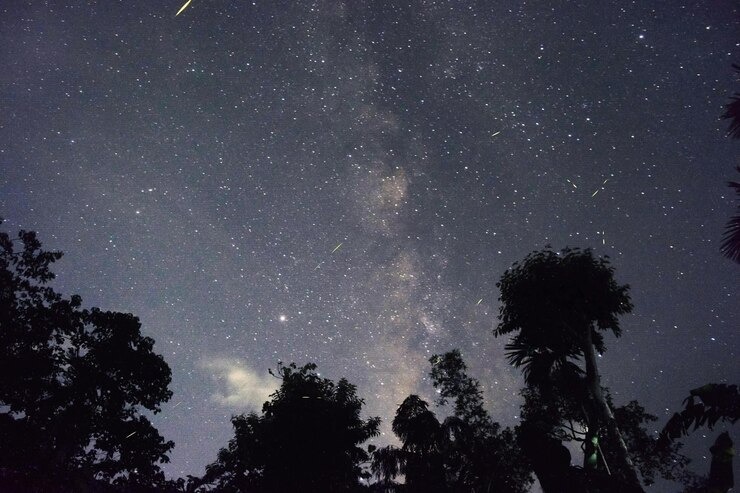
Source: freepik.com
Nestled in the Wheatbelt region just 40km from Perth, Bindoon is one of the last towns near the city, retaining notable night skies. The location’s dark setting exceeds all but the most remote WA wilderness regions.
Open farmland surrounding the town minimizes obstructed skylines, making it an accessible getaway for casual stargazing. Periodic star parties with solar power setups are organized in collaboration with local astronomy clubs.
Taroona (Tasmania)
Located on the Tasman Peninsula 15km south of Hobart, Taroona overlooks Storm Bay with expansive dark horizons. Local astronomy clubs regularly host public observing nights and astro-lectures at sites like Iron Pot Hill Reserve, spotlighting stars and planets visible from the pristine Southern Hemisphere skies. It has been designated an Australian Dark Sky Discovery Site.
Stargazing Locations: Potential Problems and Concerns
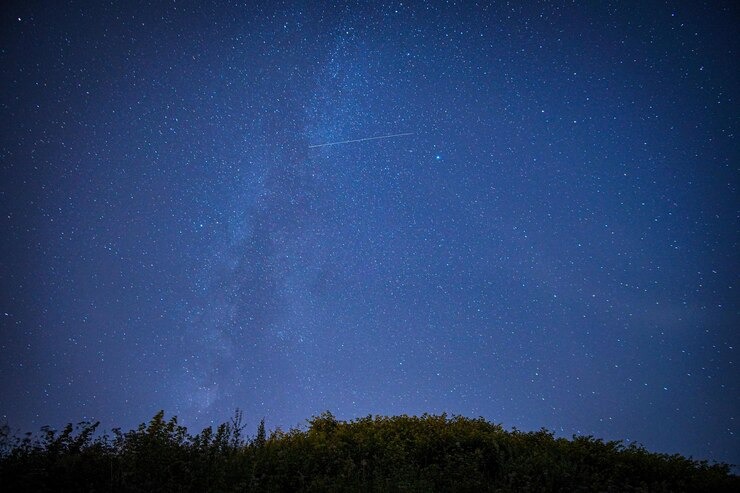
Source: freepik.com
While the remote locations of Australia’s starry sanctuaries afford pristine night skies free from light pollution, they do present some potential issues. Stargazers venturing to far-flung areas to witness the wonders above must contend with limited infrastructure support. However, a solution exists in the form of portable solar power stations. The following aspects highlight their need and significance:
Limited Power Access in Remote Areas
Many of Australia’s best stargazing sites are located hours from the nearest towns in isolated wilderness regions. This remoteness means an absence of electrical grids or cell service to power essential equipment reliably.
A high-capacity portable solar power station can store enough onboard energy through superior battery technology like lithium batteries to ensure uninterrupted power for advanced astro-imaging rigs, laptops, cameras, and accessories for multiple nights under the stars far from infrastructure. Its portability also expands the exploration range independent of external power constraints.
Insufficient Lighting for Night Observations
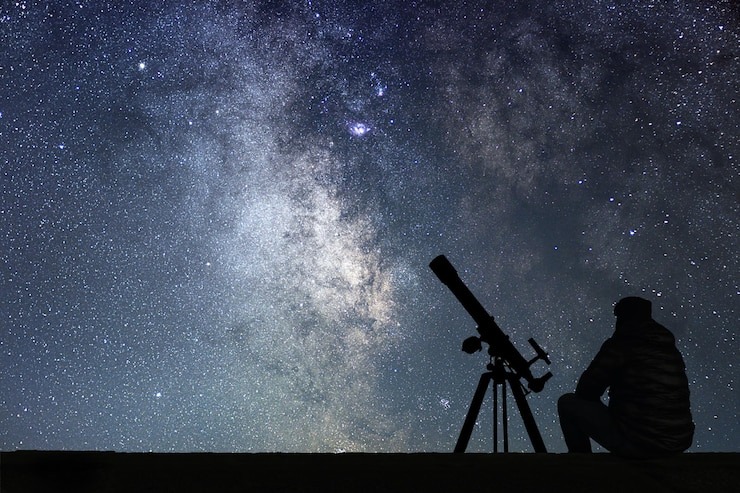
Source: freepik.com
While darkness is ideal for astronomical observation, stargazers still require some task lighting at campsites after dusk without compromising night vision adaptation. A portable solar power station enables fully controllable and adjustable LED lighting solutions that can be adjusted to very low-light levels as needed without producing bothersome light pollution or interfering with wildlife behaviour patterns.
Environmental Impact of Conventional Power Sources
Traditional gasoline generators produce considerable noise and harmful emissions that are unsuitable for protected wilderness areas. Meanwhile, rechargeable batteries create environmental waste over time.
A portable solar power station provides a clean energy alternative involving very silent operation and zero local air or noise pollution, therefore preventing disruption to both the natural setting and pristine sky conditions above.
Budget Constraints for Power Solutions
Multi-day expeditions to distant dark-sky destinations involve considerable costs for specialized equipment and transportation. Renting traditional generators adds ongoing fuel and maintenance fees, which can strain budgets for amateur, budget-conscious astronomers.
In contrast, a portable solar power station proves a one-time investment paying for itself within just a few uses through its lack of fuel needs and very low maintenance requirements. Its sustainable solar energy also enhances affordability over time compared to gas-powered alternatives.
Tips for Employing a Solar Power Station for Stargazing Activities
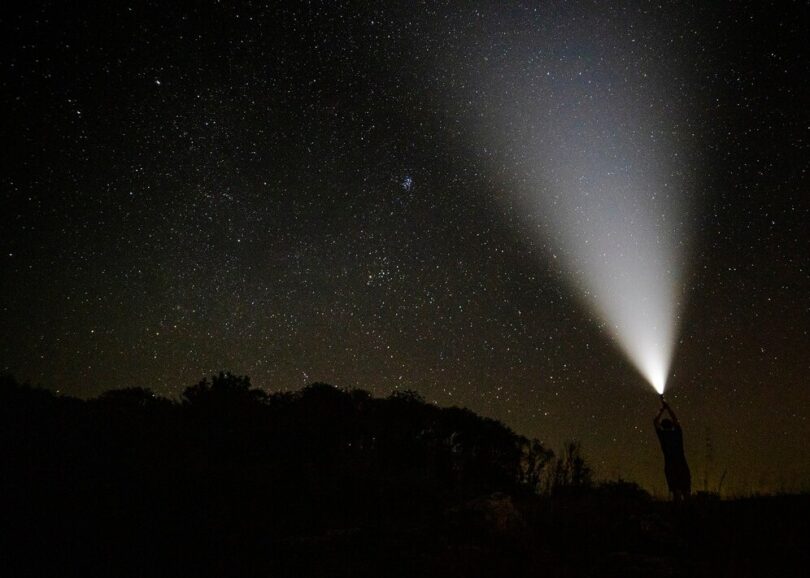
Source: freepik.com
Australia’s best stargazing sites offer magnificent night skies yet pose infrastructure challenges due to their remote wildernesses. However, a portable solar power system provides astronomers with a clean energy solution for enjoying these destinations.
With judicious planning suited to each area, solar energy solutions empower the exploration of Australia’s darkest regions while respecting their natural qualities for future stargazers. To ensure the best experience when employing a portable solar power solution for Australian stargazing, it’s recommended to:
Invest in a Portable and Efficient Solar Setup
Consider investing in a named brand solar generator with ample capacity. A high output, e.g., 2000Wh+, etc., can reliably power equipment like telescopes, laptops, cameras, and accessories simultaneously for up to 3-4 nights without needing to recharge.
Larger capacities offer more flexibility for camping under the stars away from infrastructure for multiple days. Pair the solar power generator with foldable solar panels to rapidly boost capacity during daylight and maximize uptime.
Maximize Battery Capacity for Night-time Wonders
Take time each afternoon or morning to fully charge the portable solar power station before nightfall using integrated solar panels or an AC wall charger. Ensure battery levels read 100% to confidently power devices throughout the night without worries over reserves running out prematurely.
Check charge levels periodically. Topping up daily for multi-night trips provides uninterrupted power for astronomy equipment over dusk, dawn, and beyond.
Explore Portable Solar Charging Options
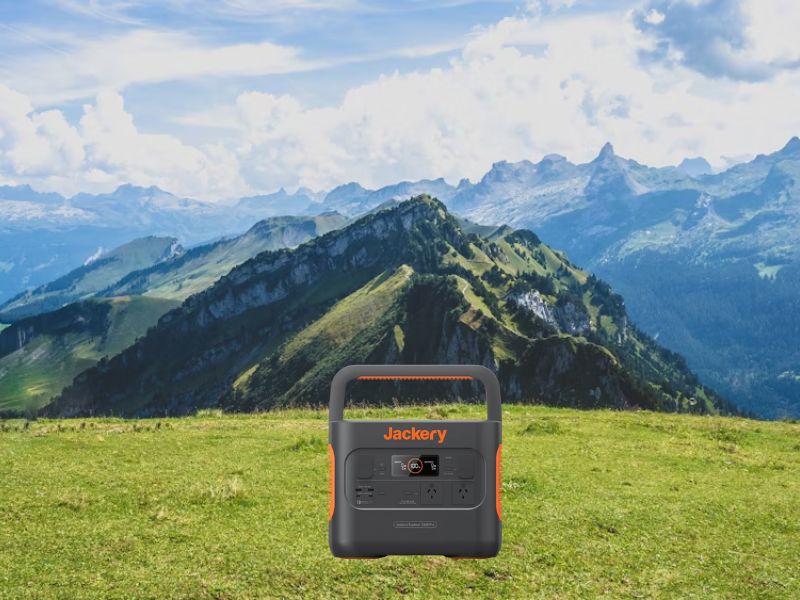
Consider hauling lightweight folding solar panels in addition to what comes with the generator. High-quality panels can turbocharge charging speeds when set up in direct sunlight. Their compact portability also allows fuelling flexibility, such as charging balanced on the roof rack en route to new sites. Multiple panels set up in parallel can fill a large generator capacity in a few hours.
Weather the Night with Durable Gear
When stargazing away from facilities, choose a tough, weather-resistant generator for dependability. Sealed components stand up dust, rain, and rough transport to remote dark sky locales across diverse settings. Thermally regulated batteries maintain safe performance in extreme desert heat as well as high country cold. Rugged construction endures harsh conditions for years of remote astronomy use.
Implement Energy Conservation Practices
Conserving stored solar power stretches runtime throughout the night. Use efficient LED lanterns and power strips, and minimize wasted energy by powering down unused devices and laptops when stepping away.
Monitor consumption to keep astronomical activities uninterrupted as long as possible by minimizing overall campsite electricity needs. It’s also recommended to consider low-power accessories specifically made for astrophotography to eke out every last watt-hour from the solar generator.
Products Highlight: Jackery’s Portable Power Stations
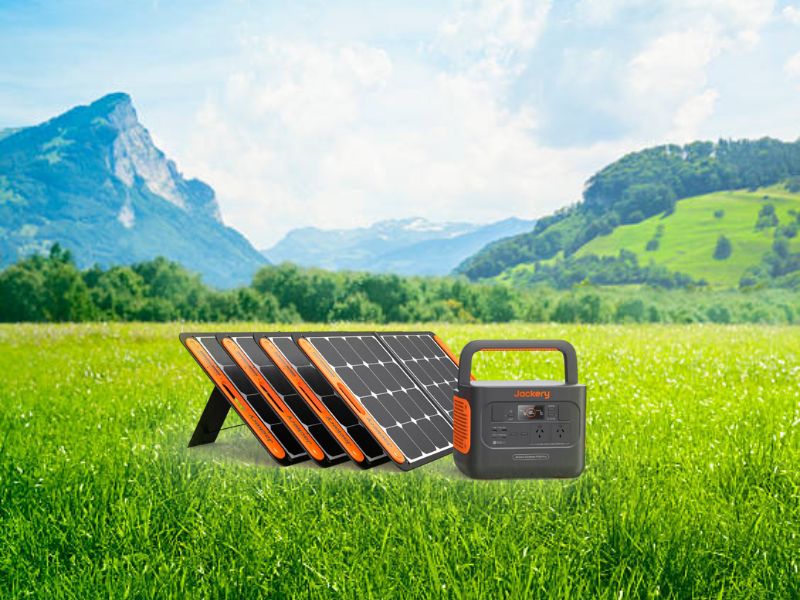
The reputed brand Jackery has a vision to bring green energy to all. It launched its first outdoor portable power stations in 2016 and developed its first portable solar panels two years later. Having introduced its solar power generators to the great outdoors, Jackery fulfils the power needs of every nature-lover, inspiring them to explore further and seek more extraordinary experiences than before.
The brand encourages its global adventurers to enjoy the outdoors sustainably, working together to protect the planet and build a better future.
Jackery has successfully filed over 400 patents worldwide for portable power solutions. Two of Jackery’s top products well-suited for Australian stellar wilderness adventures include:
Jackery Explorer 2000 Plus Portable Power Station
The Jackery Explorer 2000 Plus Portable Power Station enables astrophotographers to capture the cosmos from anywhere under Australia’s clear night skies. As a powerful yet portable solution, its 638.4Ah capacity continuously powers telescopes, cameras, laptops, and lighting for multi-day observing sessions far from city lights. Its key features include (but are not limited to) the following:
- Expandable capacity ensures uninterrupted power for multi-day stargazing adventures under remote dark sky sanctuaries.
- Reliable 3000W power output seamlessly runs astronomy equipment like telescopes, cameras, laptops, etc., for astrophotography sessions.
- Fast 6-hour recharging with 6 SolarSaga 100W solar panels fits stargazing schedules by day and empowers all-night observing without outlets.
- Weatherproof durability withstands any conditions at far-flung sites under iconic stars like Southern Cross and Milky Way.
- Quiet operation without light/sound pollution preserves pristine night vision and ambient environment for wildlife and nocturnal wonders.
- Multiple output/USB ports conveniently power any gear essential to studying and documenting the heavens.
- 10-year lifespan as a long-term ally to unlock the night sky through many observing seasons.
Jackery Explorer 2000 Pro Portable Power Station
The Jackery Explorer 2000 Pro Portable Power Station enables professional-grade astrophotography from any dark sky locale. With powerful 2200W output from its large 2160Wh battery, it seamlessly runs advanced rigs for continuous imaging sessions. It is an innovative product equipped with many advanced features. Its key characteristics include:
- Large 2160Wh capacity runs extensive rigs continuously to capture rare astronomical events and panoramas.
- 2200W power supports advanced imaging and computer equipment for serious astrophotography.
- Rapid 5.5-hour solar recharging capability (with 6 SolarSaga 100W solar panels) maximizes dark hours spent imaging celestial marvels.
- Reliable backup prevents lost image captures from remote power interrupts for serious astrophotography projects.
- Fireproof casing and drop-resistant durability assure equipment safety in field conditions. Rugged durability withstands remote field uses under Outback skies rich in stars.
- Zero emissions protect observing conditions at wilderness sanctuaries.
- Compact 19.5 kg portability facilitates transport to new dark sky frontiers.
- Eco-friendly solar charging supports dark sky stewardship by preserving natural night-time environments
- Long 10+ year lifespan as a renewable partner through changing equipment.
Conclusion
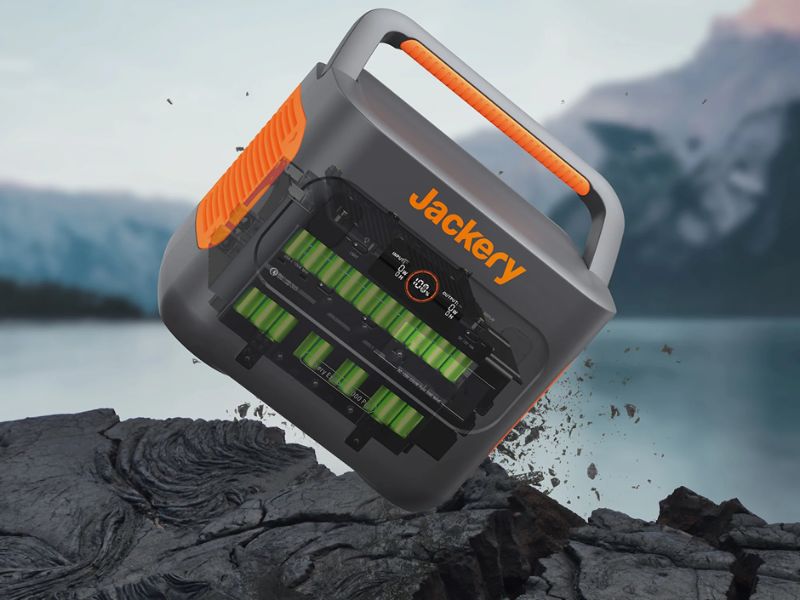
Overall, whether gazing upon the extraordinary night sky from New South Wales, Queensland, or Tasmania, Australia offers unparalleled views of the Milky Way and Southern Cross. However, unleashing the full potential of these remote wilderness observatories requires an environmentally friendly power source. Under Australia’s iconic dark skies, pairing stargazing with sustainable solar power ensures exploring the heavens remains an undisturbed delight for all.
Solar generators like Jackery’s provide exactly that – clean, silent power day or night without compromising the pristine night environment or budget. Their renewable power allows observers to uncover astronomical marvels sustainably far from light pollution.
Jackery portable solar power stations are known for their high capacity, fast charging capability, durability, and convenience. These attributes make them reliable allies for stargazers in Australia. Visit the company’s website to explore all of its versatile green energy products and solutions.







